Russia and China plan to expand mutually beneficial cooperation in the Arctic, Beijing and Washington strive to find common ground, the digital economy is expected to account for 17% of global GDP, and tourists to Japan hit an all-time high... are the world economic news highlights of the past week.
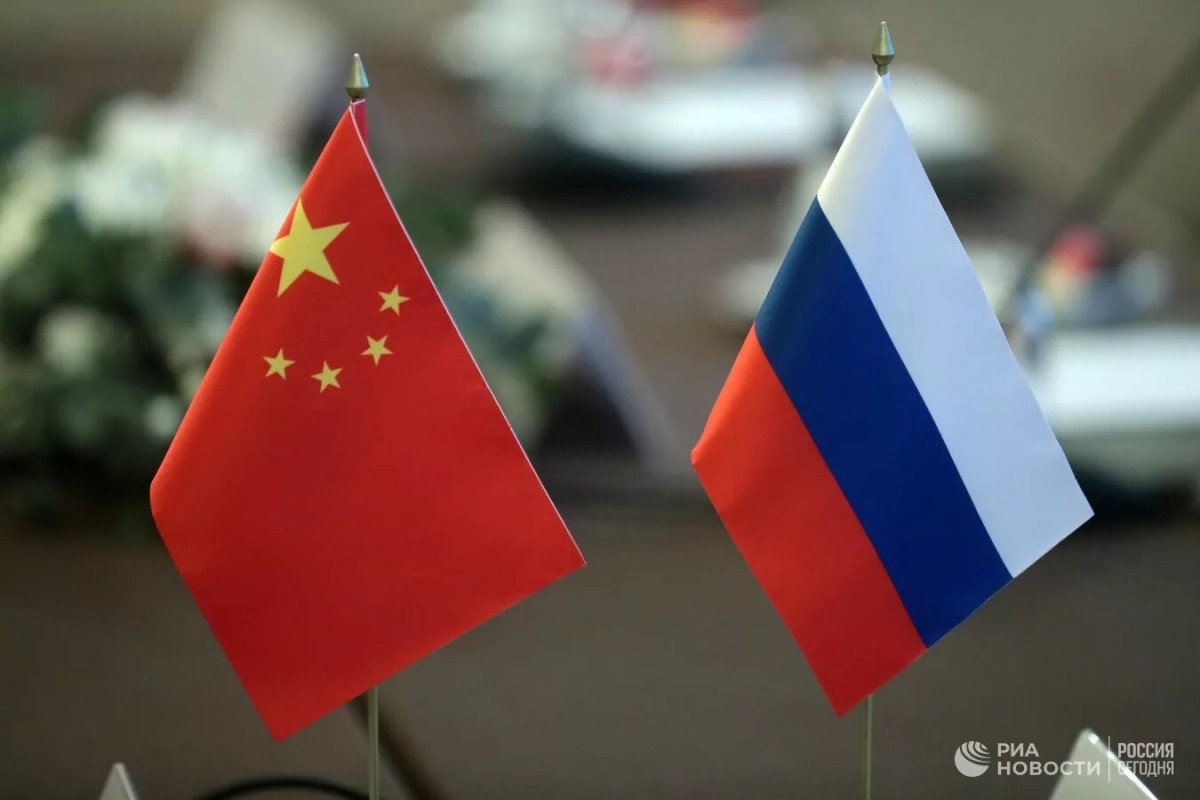 |
| Russia and China agreed to expand bilateral economic and trade cooperation. |
World economy
Digital economy forecast to account for 17% of global GDP
According to a report released by consulting and research firm Forrester on August 19, the global digital economy is expected to reach $16.5 trillion by 2028, accounting for 17% of global gross domestic product.
The company said the size of the digital economy will grow by an average of 6.9% per year from 2023 to 2028. The two main sectors contributing to this growth are e-commerce and online travel, with growth rates of 9% and 7% per year, respectively.
The US and China will account for nearly 70% of the global digital economy. While the US leads in tech spending (42%), China dominates e-commerce, with 41% of all retail sales forecast to take place online by 2028.
According to estimates by the World Economic Forum (WEF), nearly 70% of new value created in the next decade will come from digital platforms, said Michael O'Grady, principal forecasting analyst at Forrester.
To promote the development of the digital economy, countries need to focus on digital businesses, online public services, digital skills, research and development, as well as investment in technology that affects non-digital activities.
The report also pointed out that South Korea is the country spending the most on research and development, with a focus on areas such as artificial intelligence (AI), semiconductors for AI, 5G and 6G, metaverse, and cybersecurity.
In contrast, digital investment in Europe remains sluggish, with average annual growth from 2024 to 2027 expected to reach 83 billion euros ($91.8 billion), significantly lower than the 125 billion euros targeted by the European Commission.
The world's six largest digital economies are the US, China, UK, Japan, Germany and South Korea.
America
* The US Federal Reserve will cut interest rates by 25 basis points at each of its remaining three meetings this year, one more than forecast last month, according to a majority of economists surveyed by Reuters .
The Fed's rate cut forecast changed after the US July 2024 jobs report was less positive than expected, leading traders earlier this month to predict a rate cut of up to 120 basis points in 2024. That number has now dropped to nearly 100 basis points.
China
* The People's Bank of China (PBoC) said it had reached an agreement with the US Treasury Department to designate contact persons to handle any future financial stress situations , a rare example of efforts to find common ground between the world's two largest economies.
The two sides also exchanged contact lists on financial stability during the fifth meeting of the Financial Working Group, which was established after US Treasury Secretary Janet Yellen's visit to China last year.
This is the first time senior US and Chinese officials have met since the Asian giant announced its long-term priorities last month.
* China said on August 21 that it would launch an investigation into European Union (EU) subsidies on some dairy products imported into the country, a day after the EU announced plans to impose import duties on Chinese electric vehicles.
China's Ministry of Commerce said it has decided to launch an anti-subsidy investigation into imports of dairy products from the EU, including fresh cheese and curd, blue cheese and some milk and cream products. The investigation will look into certain subsidies under the EU's Common Agricultural Policy and will be completed within a year, but can be extended for another six months.
Beijing is currently conducting several other investigations into the trade practices of the 27-nation bloc.
Europe
* According to a joint statement released on the evening of August 21 (local time) after the 29th regular meeting between the heads of government of Russia and China in Moscow, the two countries agreed to expand bilateral economic and trade cooperation.
The two sides agreed to commit to optimizing the trade structure, creating new growth spearheads for the two countries' economies and bilateral trade turnover, and promoting the development of e-commerce.
The statement stressed that the two countries will strive to expand mutually beneficial cooperation in the Arctic, strengthen cooperation in the development of maritime transport, maritime safety, polar ship technology and construction.
* German auto parts supplier AE group has filed for bankruptcy after months of restructuring, becoming the third company in the German auto manufacturing industry to officially declare bankruptcy in the past two weeks.
The German auto industry is going through a series of crises, according to German business magazine WirtschaftsWoche. The shift to electric vehicles and stagnant demand are also affecting suppliers.
Last week, industry leader Muerdter Group filed for bankruptcy, following the lead of 110-year-old auto parts supplier Recaro. Recaro cited price spikes, market changes and the loss of a major order as reasons for its collapse.
* On August 21, Belarusian Prime Minister Roman Golovchenko said that the country plans to increase its export turnover by 5.4% to 52 billion USD in 2025. Speaking at a Belarusian government meeting, Prime Minister Roman Golovchenko said: "Exports are expected to increase by 5.4%... forecasts on the development of foreign markets allow to increase foreign currency revenues by 2.8 billion USD."
In addition, the Belarusian Prime Minister assessed that the country's inflation rate in 2025 will be stabilized at no more than 5% and economic growth is forecast at 4.1%, higher than the global economic growth rate.
* Director of the Department of the Commonwealth of Independent States of the Russian Foreign Ministry Mikael Agasandyan announced on August 20 that the negotiation process between the Eurasian Economic Union (EAEU) and Indonesia on a free trade agreement (FTA) is in the final stage and the draft cooperation agreement is being finalized.
Previously, in July, Russian President Vladimir Putin met with Indonesian President-elect Prabowo Subianto, in which the two leaders emphasized that the FTA between the EAEU and Indonesia will play an important role in the development of trade relations between the two countries.
* In a recent interview, the Director of the World Food Programme (WFP) in Ukraine, Richard Ragan, said that the organization has facilitated the export of grain and other food products from Ukraine from Black Sea ports to support countries facing food crises, as well as the country's agricultural sector.
Currently, under President Volodymyr Zelensky's Grain from Ukraine initiative, WFP has shipped 164,000 tons of food to countries facing food crises, and will allocate an additional $47 million to purchase 35,000 tons of food for its operations.
Japan and Korea
* Official figures from the Japan National Tourism Organization (JNTO) show that the "cherry blossom country" recorded a new record in the number of tourists for the second consecutive month in July 2024, amid a weak Yen and summer holidays fueling a tourism boom.
Specifically, the number of international visitors to Japan for business and tourism purposes reached 3.29 million, an all-time high, surpassing the previous record set in June of 3.14 million.
JNTO said vacations in East Asia and Europe have contributed significantly to the increase in visitors from those regions. As of July 2024, more than 21 million visitors have visited Japan, a figure that is expected to surpass the annual record of 31.9 million in 2019, before the Covid-19 pandemic triggered a wave of global border closures.
* Japan recorded a trade deficit of 621 billion yen ($4.3 billion) in July 2024, due to soaring import prices, according to government data released on August 21.
Japan's imports rose nearly 17 percent year-on-year to 10.2 trillion yen, while exports rose 10 percent to 9.6 trillion yen ($66 billion), the Finance Ministry said.
* South Korea's Hyundai Motor Group, which includes Genesis and Kia, captured 10% of the US electric vehicle market in the first seven months of 2024, surpassing local automakers Ford and General Motors to reach the second position in market share.
The above results were achieved thanks to strong sales of Hyundai Motor's flagship electric models such as the IONIQ5 and IONIQ6. In July, sales of these two models increased by 25% and 54% respectively compared to the same period in 2023.
* The South Korean government has extended a fuel tax cut by two months until the end of October, citing geopolitical instability and increased crude oil price volatility.
Crude oil price volatility has increased recently due to rising geopolitical tensions in the Middle East, while the expiration of fuel tax cuts could further burden livelihoods, according to South Korean Economy and Finance Minister Choi Sang-mok.
The current fuel tax is 656 won (49 cents) per liter of gasoline, down 20 percent from the standard tax rate, and 407 won per liter of diesel, down 30 percent.
South Korea's latest decision marks the 11th extension of fuel tax cuts since November 2021, as inflation has soared during the COVID-19 pandemic.
ASEAN and emerging economies
* Thailand's acting Finance Minister Pichai Chunhavajira stressed on August 21 that the country's economy is approaching a "crisis" due to falling exports and weak production. According to Mr. Pichai, exports account for 70% of the economy's value but domestic production cannot meet market demand.
Southeast Asia's second-largest economy grew just 2.3% year-on-year in the second quarter of 2024 and is forecast to grow just 2.7% for the full year of 2024, lower than other countries in the region.
* According to a report on August 16 by Enterprise Singapore (EnterpriseSG), Singapore's non-oil exports recovered strongly in July 2024, increasing by 15.7% compared to the previous month. This is a positive signal after a period of decline.
The increase was driven by high demand for electronic products such as computers, peripherals and integrated circuits. Non-electronic items such as gold, petrochemicals and specialized machinery also contributed significantly.
* On August 20, the Indonesian Geothermal Association (API) announced its support for national efforts to make Indonesia a global leader in the development and use of geothermal energy .
According to API Chairman Julfi Hadi, geothermal is a renewable energy source with great potential in Indonesia. To optimize this potential, there needs to be effective cooperation between the government through the Ministry of Energy and Mineral Resources, independent power producers (IPPs) as developers, the State Electricity Corporation (PLN) as buyers, and API as experts.
Mr. Hadi proposed three cooperation models that could accelerate the development of the country's geothermal energy potential, one of which is through geothermal power plants (binary power plants), to increase the efficiency of geothermal resource utilization.
Source: https://baoquocte.vn/kinh-te-the-gioi-noi-bat-16-228-nga-trung-quoc-hop-tac-o-bac-cuc-bac-kinh-washington-tim-tieng-noi-chung-du-khach-toi-nhat-ban-cao-ky-luc-283463.html






























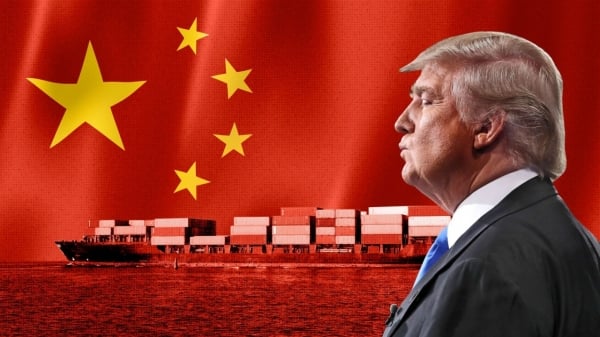

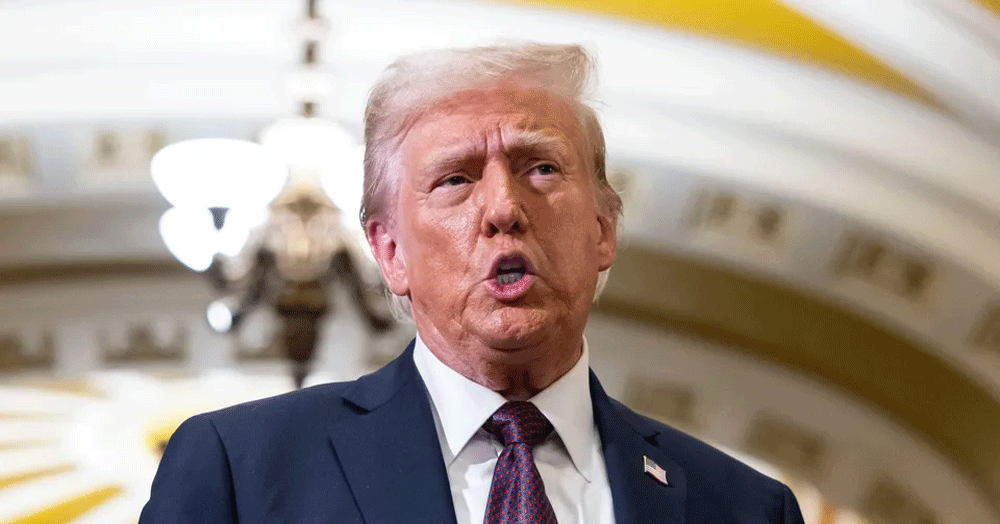

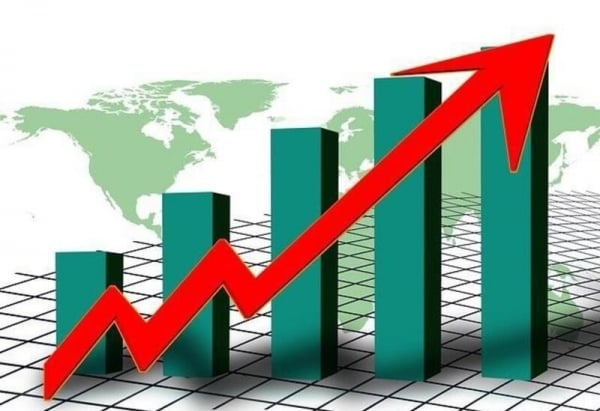

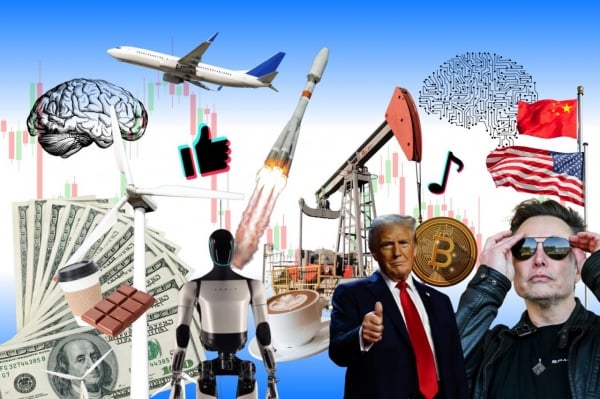
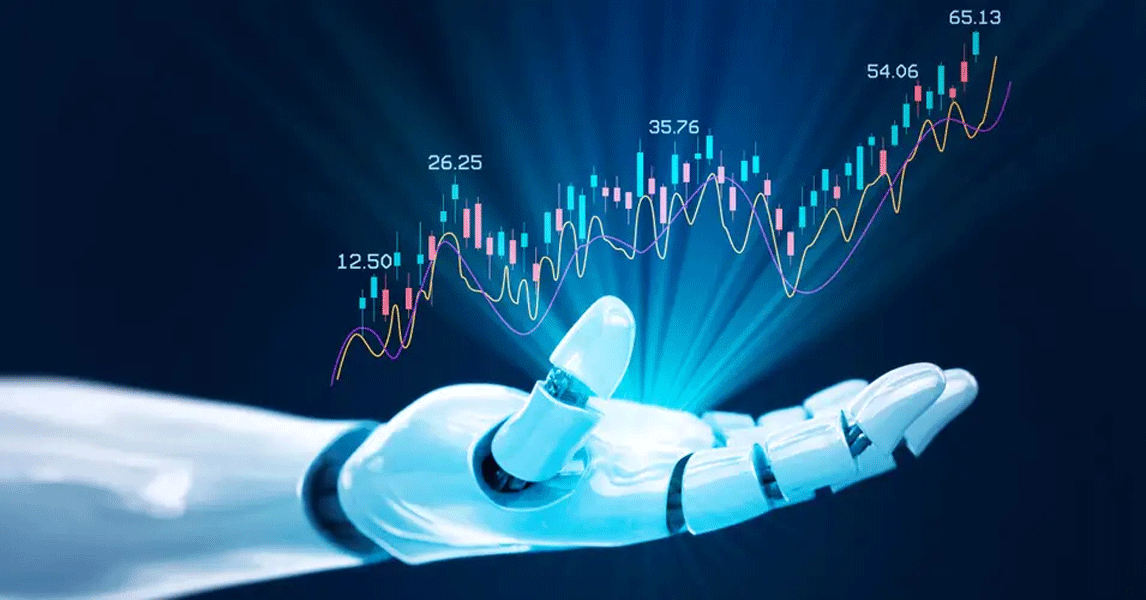


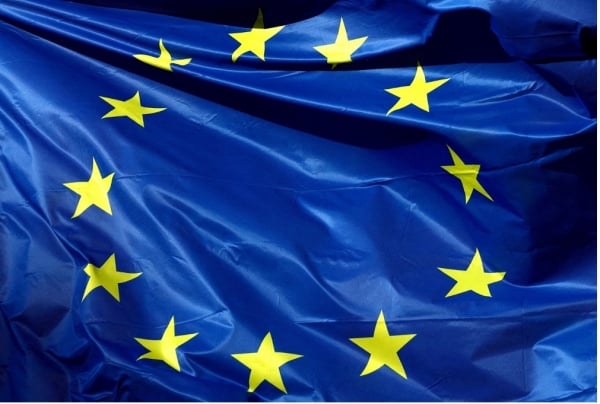



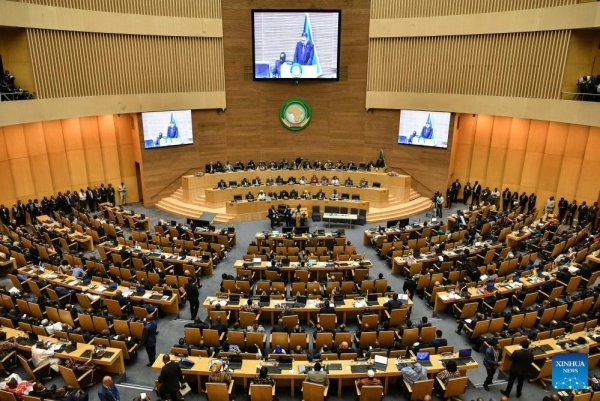
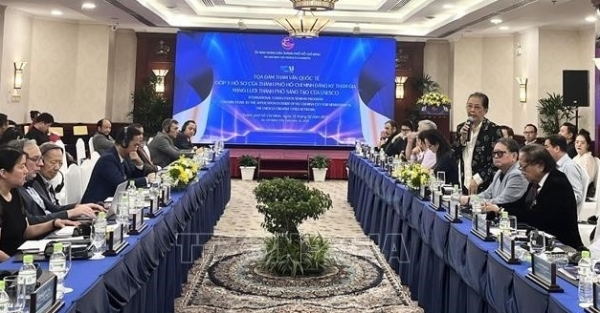

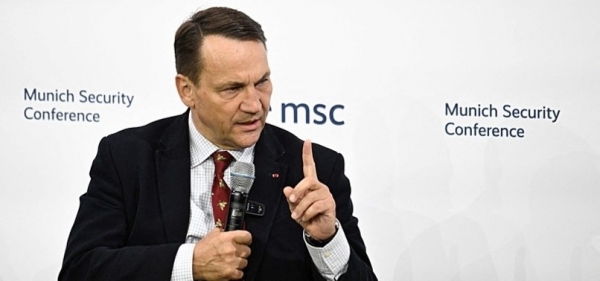
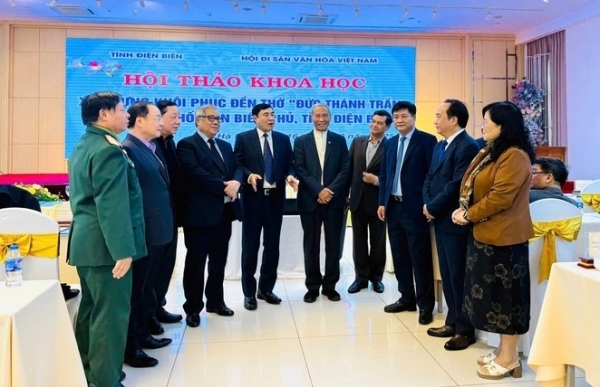














Comment (0)